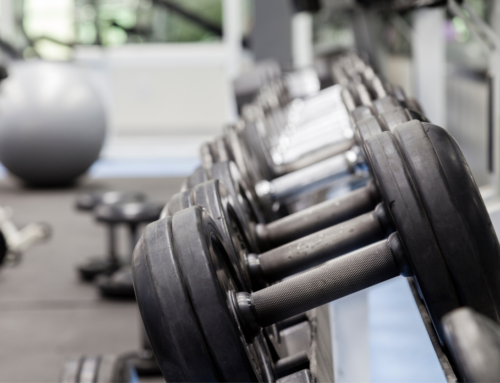For college-bound athletes on a budget while away from home for the first time this fall, consuming healthy foods and beverages can be challenging. This article provides tips for stocking dorm rooms with inexpensive, nutritious, and long-lasting items to support wellness, academics, sports, and exercise performance.
These foods and beverages are time-efficient, easy to prepare in advance, and make great portable snacks between classes and practices. But, while packing for college, make sure you also bring these:
- Can opener
- Plastic sandwich bags
- Blender
- A pot (if a stove is available)
- Sieve (e.g., for draining pasta water, water-packed canned fish, beans, or fruit).
Also important: Dorms may or may not have refrigerators or freezers. If not, purchasing a low-cost small fridge with a freezer is practical and essential for storing perishable foods and extending the shelf life of the various foods listed below. And if there’s a small kitchen and stove in the dorm, that’s another plus for making healthy beverages with long-lasting expiration dates like green or black tea and instant coffee, or making convenient and inexpensive hard-boiled eggs, or cooking frozen vegetables, potatoes, yams, dried pasta, brown rice, quinoa, oatmeal or farina (all which appear in this article).
Shopping Guidelines
Ideally, there’s a food market near or on campus, instead of regularly dining at the campus cafeteria or potentially costlier local restaurants and not always providing desirable healthful menus. Instead, shopping at a food store gives athletes more control over buying the healthiest and affordable foods and beverages. However, buyer beware:
- Always check the expiration date of foods/beverages! Canned, packaged, and frozen goods usually have long-term expiration dates (several months to a year from the date of purchase) compared with fresh fruits and vegetables, for instance, which can perish within one or two weeks.
- Check ingredients on labels – generally, the fewer the ingredients, the more natural the product without processed additives.
Unless food allergies exist, shop for the following nutrient-dense foods and beverages:
Protein-Rich Foods/Beverages
- Canned Fish (e.g., tuna, salmon). Buy tuna or salmon packed in water rather than oil, and drain the water and salt. Add heart-healthy olive oil, lemon or lime juice, and spices for flavor. Canned fish contains body-building protein for muscle growth and recovery from weight room workouts, games, and practices and immune system-boosting Omega-3 fatty oils.
- Canned Beans. Like fish, beans are a good protein source. High in dietary fiber, beans also benefit heart health. Like canned fish, rinse the beans and drain off the added water and salt.
- Powdered Milk. Milk in cartons or bottles can spoil after a while and sour. An alternative is long-lasting powdered milk – add cold water, mix, and voila – either a refreshing glass of milk, pour it over cereal, or blend with frozen fruit for a delicious smoothie. Powdered milk has all the vitamins, minerals, and body-building protein of bottled milk.
- Ricotta Cheese. Check containers of ricotta cheese and see that this cheese is another fine alternative to regular milk since the expiration date is marked for two to three months from the date of purchase. Ricotta cheese atop frozen berries makes a delicious and nutritious dessert or snack. Buy a large container, refrigerate, and have a few spoonfuls daily for breakfast, lunch, or dinner.
- String Cheese. A wonderful calcium-rich portable snack, like ricotta cheese, is also good for building bone and muscle. Place some in sandwich bags in the fridge, and take them with you en route to the gym or class.
- Yogurt. This immune-enhancing, muscle-building food has an expiration date of a few weeks from the purchase date. Greek yogurt generally has a higher protein content.
- Nuts and Seeds. Packed with essential fats and some protein, nuts, and seeds also are heart-friendly and high in fiber. Store in a cool place to prevent rancidity. Accompanied with dried fruit (e.g., raisins, prunes), nuts and seeds make a great pre-or post-workout energizing or recovery protein/carbohydrate combo snack: place nuts, seeds, and dried fruit in sandwich bags for eating on the go, for instance.
- Hard-Boiled Eggs. Refrigerated eggs have a lengthy expiration date listed on the carton (generally over a month from the purchase date). They’re low cost and sold in cartons of 6, 12, 18, or even 24. Place a dozen eggs in a pot filled with water, boil, cool, refrigerate, and consume one or two a day for another handy muscle-building food for on the go, breakfast, lunch, or dinner.
Energizing Carbohydrate Foods
- Dried fruit. Raisins, prunes, and dried apricots, for example, last a few months in the refrigerator and are excellent portable, convenient, vitamin and mineral-rich energizing snacks accompanied with string cheese, nuts or seeds or topped on whole-grain cereal.
- Frozen fruits and vegetables. Frozen fruits and veggies are just as nutritious as the fresh kind – but can be stored in the freezer for a few months. Open a bag of frozen berries, for instance, and take a few out, thaw in the refrigerator overnight, and have for breakfast or place in the blender for a smoothie. The same goes for frozen veggies – thaw part of the bag and have it for lunch or dinner.
- Canned fruit (e.g., peaches, pineapple). Store for a year or longer from the purchase date in the cabinet, and buy canned fruit in its own juices – not processed with added syrup or sugar.
- Whole-grain bread and cereals. Freeze a loaf of whole-grain bread, thaw a few slices every few days, and make a sandwich or toast. Whole grain cereals like oatmeal and farina last several months in a cool, dark area (cabinet). Mix powdered milk and water, boil and combine with oatmeal or farina for breakfast or as a bedtime snack.
- Quinoa. This protein-rich and high-fiber grain is an underrated and uncommon food (compared with the more popular oatmeal or farina) with a long shelf life. Boil and have as a cereal or side dish for dinner, for example.
- Brown rice. Higher in fiber than white rice, boil a cupful of brown rice for a hearty side dish or toss in some beans and peas for a great protein/carbohydrate meal.
- Pasta. Dried pasta lasts up to a year in the cabinet. Buy whole grain or whole wheat pasta for variety and greater nutrition.
- Canned tomato sauce. Heat and serve over pasta.
- Potatoes and yams. Store in a cool, dark area, and these nutrient-dense food staples should last up to two weeks.
Healthy Beverages
- Water. Whether bottled or straight from the tap, water is number one among beverages for athletes and non-athletes alike for maintaining hydration, cooking, or making other healthful beverages such as black or green tea or instant coffee. Store bottled water packs in the fridge for several weeks.
- Black and green tea and instant coffee. Boxed black and green tea bags and instant coffee containers last several months in a cabinet. Each has heart-healthy and natural anti-inflammatory antioxidants for helping reduce muscle and joint soreness and inflammation from strenuous workouts and sports.
Beneficial Condiments
- Mustard. Refrigerate and top on hard-boiled eggs or make a dressing with lemon juice and olive oil for salads or veggies.
- Lemons and limes. Generally refrigerate well for up to two weeks, slice and squeeze them in water or tea for added flavor, or make a dressing with olive oil as previously mentioned for salads or atop canned fish.
- Olive oil. This heart-healthy bottled oil lasts a month or more in a cool, dark area and is useful for cooking or atop salads and veggies.
- Bottled herbs and spices. Store long-lasting and anti-inflammatory, antioxidant-rich bottled herbs like parsley, basil, oregano, garlic and onion powder, powdered ginger, and spices like cinnamon, black pepper, and crushed red pepper flakes in a dark and cool cabinet for seasoning foods.
- Salt. Lasting several months, use sparingly and season lightly over foods for flavor. Salt is also useful for medicinal purposes. A time-honored sore throat remedy is gargling with salt mixed in warm water a few times a day and relieving annoying dry coughs.
- Vinegar. Store red wine vinegar or apple cider vinegar for several months in the cabinet and use salads or cooking.
Follow these food and beverage suggestions and two additional wellness guidelines: Regularly try to get 8-10 hours of nightly sleep and consistently exercise to promote mental and physical academic and athletic performance during your college years.
Original article posted on stack.com
Did you enjoy the article ‘College Athletes Guide To Nutrition On A Budget’? If so, check out more of our articles HERE.





